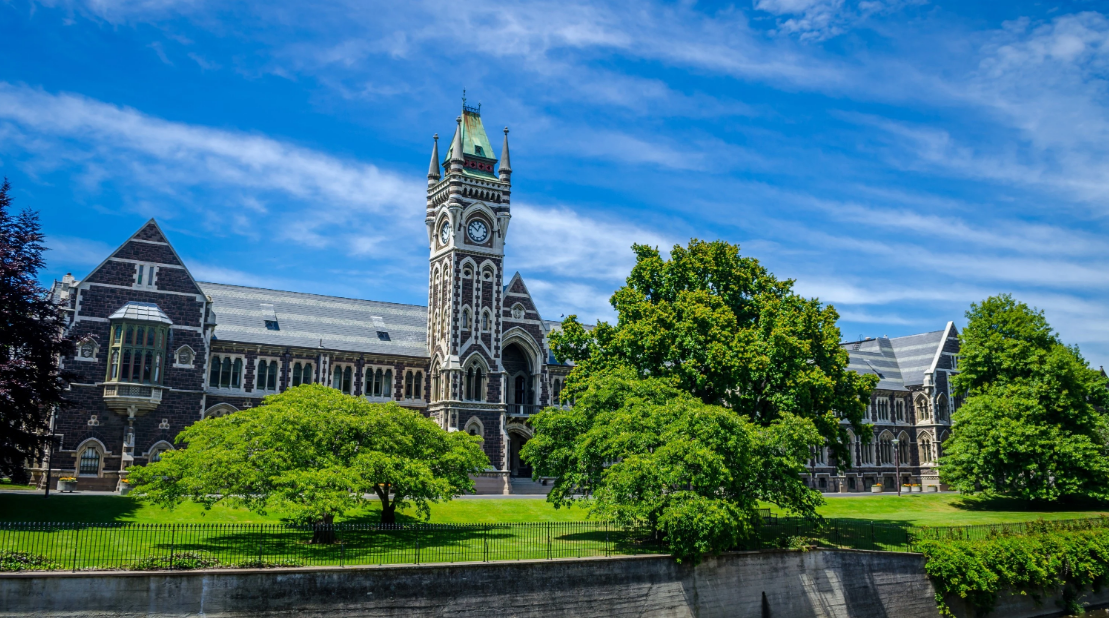Studying on Scholarship in New Zealand
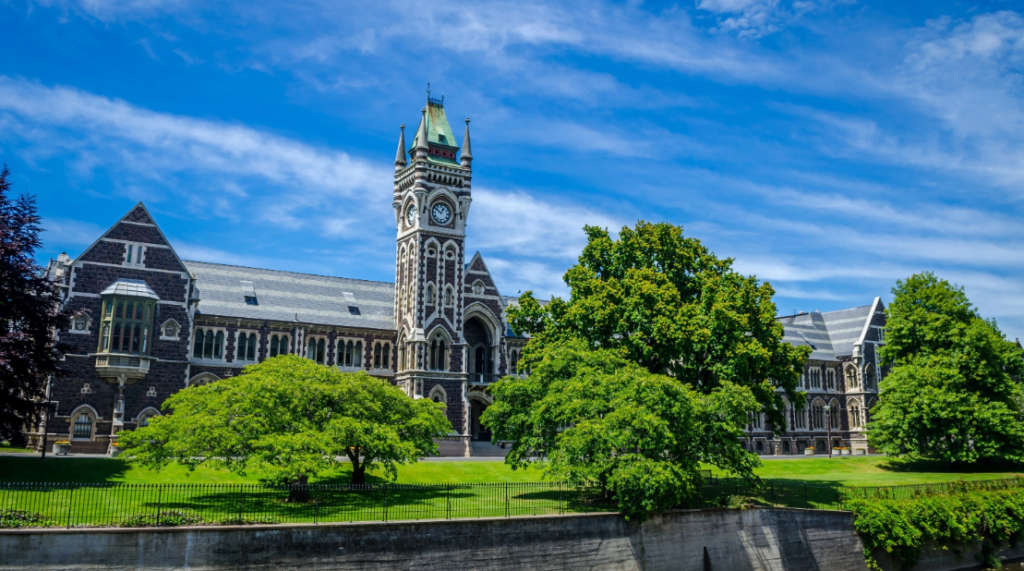
For international students interested in pursuing a medical career, New Zealand offers a world-class education system, renowned universities, and a supportive, multicultural environment. Studying medicine in New Zealand can be especially attractive due to various scholarships designed to support talented students. With top medical schools, New Zealand provides a structured pathway to becoming a qualified doctor, making it a desirable choice for aspiring medical professionals.
The medical education pathway in New Zealand includes rigorous entry requirements, specialized training, and competitive scholarships that cover tuition fees, living expenses, or both. Understanding these elements is crucial for international students aiming to pursue medicine on a scholarship. In this guide, we will walk you through the key steps and requirements for studying medicine in New Zealand, from educational prerequisites to post-graduation opportunities, and explore available scholarships to help you achieve your goals.
Why Study on Scholarships in New Zealand?
New Zealand is increasingly popular among international students due to its quality medical education, advanced healthcare system, and attractive scholarship opportunities. Here are some compelling reasons to consider studying on a scholarship in New Zealand:
Quality Medical Education:
New Zealand’s medical programs are highly regarded globally, with a focus on hands-on learning, clinical skills, and critical thinking. The country’s medical schools, such as the University of Otago and the University of Auckland, are known for producing well-trained medical professionals.
Scholarship Opportunities:
Scholarships are available for international students from different backgrounds, including merit-based, need-based, and government-sponsored scholarships. Many scholarships cover tuition costs, accommodation, and other living expenses, easing the financial burden and making education more accessible.
Pathway to Licensure and Employment:
New Zealand offers a clear pathway for medical graduates to gain licensure and employment. From internships to residency programs, students are given the opportunity to apply their knowledge in real-world settings, which is essential for obtaining full medical registration.
High Standard of Living:
New Zealand ranks high in quality of life, safety, and natural beauty. International students benefit from a supportive environment, friendly communities, and the chance to explore beautiful landscapes, contributing to an enriching educational experience.
Growing Demand for Medical Professionals:
With a growing population and increasing demand for healthcare services, New Zealand has a steady demand for doctors, making it an attractive option for medical graduates looking to secure employment and build a career in healthcare.
Studying medicine in New Zealand on a scholarship allows international students to benefit from high-quality education and a pathway to a stable career in a country that values healthcare professionals.
Overview of the Medical Education System in New Zealand
The medical education system in New Zealand is designed to equip students with the knowledge and skills necessary to become competent medical professionals. The journey to becoming a doctor generally involves a structured pathway, including pre-medical education, medical school, and clinical training. Here’s an overview of the system:
Bachelor of Medicine and Bachelor of Surgery (MBChB):
Medical training in New Zealand typically culminates in the MBChB degree, which is awarded by two main medical schools: the University of Otago and the University of Auckland. Both schools offer a comprehensive curriculum that combines theoretical coursework, practical training, and clinical rotations.
Pre-Medical and Undergraduate Requirements:
Students typically need to complete a year of pre-medical studies before applying to medical school.
Clinical Training and Internships:
Clinical training is integral to the medical program, with students participating in hands-on rotations in hospitals and healthcare facilities across various specialties. This exposure allows students to develop practical skills and gain experience in real medical settings.
Exams and Licensing:
New Zealand requires all medical graduates to pass specific exams to become licensed doctors. These licensing requirements ensure that graduates meet the high standards of medical practice in the country.
Residency and Specialization:
After completing medical school and obtaining an initial license, graduates have the option to pursue further training in their chosen specialties through residency programs. This pathway allows them to gain advanced skills and qualify for specialist roles.
The medical education system in New Zealand emphasizes practical experience and a clear progression toward medical licensure, making it an attractive option for international students looking to build a solid foundation in medicine.
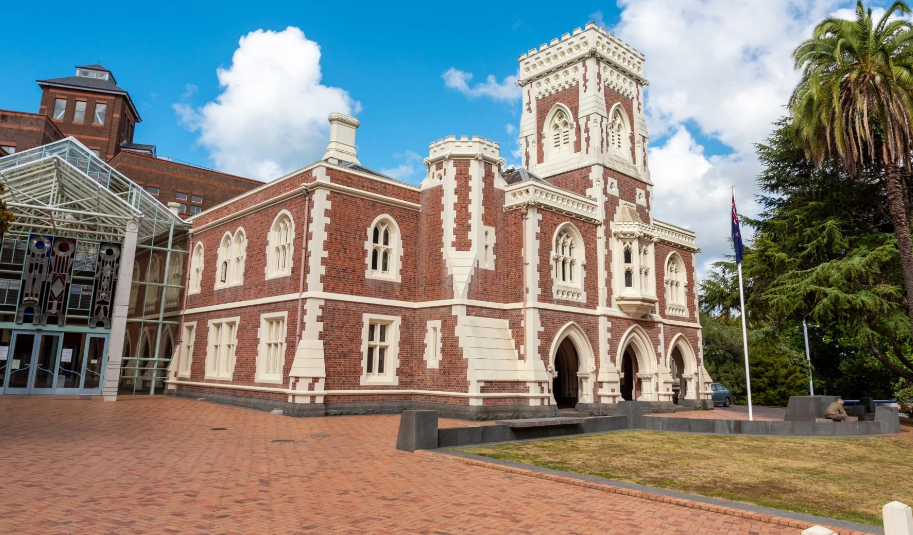
Step 1:
Pre-Medical Requirements
Before applying to a medical program in New Zealand, international students must meet certain pre-medical requirements to ensure they are prepared for the rigorous study of medicine. These requirements typically include academic prerequisites, recommended high school subjects, and entrance exams. Here’s what you need to know:
Educational Prerequisites
To qualify for medical school in New Zealand, most students are required to complete a year of pre-medical study. This foundation year, known as Health Sciences First Year (HSFY) at the University of Otago or as the first-year Bachelor of Health Sciences at the University of Auckland, includes essential courses in biology, chemistry, physics, and population health. These programs prepare students with the core knowledge necessary for success in medical school.
Recommended High School Subjects
High school students aiming to study medicine in New Zealand should focus on science-related subjects. Recommended courses typically include:
Biology: Essential for understanding human anatomy, genetics, and physiology.
Chemistry: Key to grasping the biochemical processes of the human body.
Physics: Important for understanding the principles of medical equipment and diagnostic tools.
Mathematics: Useful for analytical skills and understanding data in medical studies.
Excelling in these subjects not only strengthens a student’s application but also provides a solid foundation for the pre-medical year.
Entrance Exams Required
Both the University of Otago and the University of Auckland require prospective medical students to complete the University Clinical Aptitude Test (UCAT). The UCAT assesses critical skills, such as logical reasoning, problem-solving, and decision-making, which are vital for medical studies and practice. Preparing thoroughly for the UCAT is essential, as it is highly competitive and often a determining factor in admission decisions.
Meeting these pre-medical requirements is the first step toward gaining acceptance into a medical program in New Zealand. A strong academic background, relevant high school courses, and good UCAT scores are crucial for a successful application.
Step 2:
Applying to Medical School in New Zealand
The application process for medical schools in New Zealand is competitive, with strict deadlines, detailed requirements, and specific documentation needed. International students must familiarize themselves with each aspect to ensure they submit a complete and timely application.
Application Process for International Students
For international students, applying to a medical school in New Zealand typically involves these steps:
Complete Pre-Medical Studies:
Finish the Health Sciences First Year (HSFY) or equivalent pre-medical courses, depending on the program and institution.
UCAT Registration and Scores:
Register for the University Clinical Aptitude Test (UCAT) and ensure your scores are available to the medical schools you’re applying to.
Submit Online Application:
Applications are generally submitted through the university’s online portal. International students should check each institution’s requirements, as details may vary slightly between the University of Otago and the University of Auckland.
Attend an Interview (if required):
Some programs may require an interview to assess candidates’ communication skills, empathy, and readiness for medical studies.
Key Deadlines and Timelines
UCAT Registration: Usually opens early in the year, with the exam taking place mid-year
Application Deadlines:
The University of Otago and the University of Auckland typically have strict deadlines in the latter half of the year for applications to start the following academic year. Make sure to check each school’s official website to avoid missing these dates.
Documents Required for Admission
When applying to medical school in New Zealand, students will need to submit the following documents:
Academic Transcripts:
Showing grades from high school and any pre-medical coursework.
Proof of English Proficiency: For non-native English speakers, tests like the IELTS or TOEFL are usually required.
UCAT Scores:
A mandatory requirement for most medical programs.
Passport and Identification:
For international students, a valid passport and proof of identity.
Letter of Motivation or Personal Statement: Although not always required, some programs encourage applicants to submit a statement explaining their motivations and suitability for a medical career.
Preparing these documents ahead of time and double-checking each requirement will help ensure a smooth application process and increase your chances of being considered for admission.
Step 3:
Medical School Structure in New Zealand
Medical education in New Zealand is structured to give students a well-rounded, in-depth understanding of both theoretical and practical aspects of medicine.
Overview of the Medical Curriculum
The Bachelor of Medicine and Bachelor of Surgery (MBChB) degree spans approximately six years. The curriculum typically includes:
Preclinical Years:
The first few years focus on foundational medical sciences such as anatomy, physiology, biochemistry, and pathology. These years provide the theoretical basis for clinical practice.
Clinical Years:
The final years are dedicated to clinical training, where students gain hands-on experience through rotations in hospitals, clinics, and community health centers. During this time, students work under the supervision of experienced doctors, interacting with patients and practicing essential medical skills.
Clinical Rotations and Practical Training
Clinical rotations expose students to various specialties, including internal medicine, surgery, pediatrics, obstetrics and gynecology, psychiatry, and general practice. This part of the program is crucial, as it allows students to apply their knowledge in real-world situations, refine their communication skills, and gain experience in different areas of medicine.
Each rotation typically lasts several weeks, allowing students to immerse themselves in each specialty and explore potential fields for further specialization.
Duration and Cost of Medical Education
The standard duration for completing the MBChB in New Zealand is six years, including the pre-medical year. This timeline ensures that students receive both a thorough education and sufficient practical experience.
Medical school costs in New Zealand can vary depending on the university and program, but for international students, tuition fees generally range from NZD 70,000 to NZD 80,000 per year. This can make scholarships and financial aid especially valuable for covering part or all of these expenses.
This well-rounded curriculum ensures that graduates from New Zealand’s medical schools are highly competent and prepared for clinical practice.
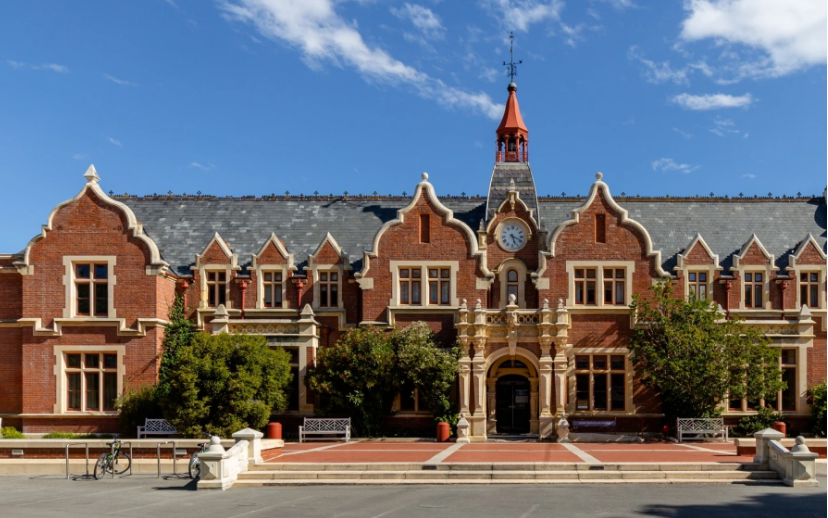
Step 4:
Exams, Licensing, and Certifications
After completing medical school in New Zealand, graduates must pass specific exams and obtain licensing to practice as a doctor in the country. These requirements ensure that all practicing physicians meet New Zealand’s standards for medical care and are qualified to handle patient needs effectively.
Required Licensing Exams in New Zealand
To gain licensure, graduates of New Zealand medical schools must complete a set of examinations and clinical assessments, which often include:
New Zealand Registration Exam (NZREX):
For international medical graduates (IMGs), the NZREX is required if they have completed medical school outside New Zealand. This exam evaluates clinical knowledge and skills, ensuring that international graduates meet New Zealand’s standards.
Clinical Competency Assessment (CCA):
Some applicants, especially those not immediately entering a residency or internship, may need to pass a competency assessment to verify their practical skills.
Certification Bodies and Exams After Graduation
New Zealand medical school graduates must apply to the MCNZ to begin practicing under a provisional registration, which is typically required during their first internship year (often called the “House Officer” year). After completing their internship, graduates may apply for full registration, allowing them to practice independently.
Continuing Medical Education (CME):
Licensed doctors in New Zealand are required to participate in CME to stay updated with the latest medical knowledge and maintain their certification. This requirement encourages lifelong learning and helps doctors provide high-quality patient care.
Meeting these certification and licensing requirements is essential for practicing medicine in New Zealand, ensuring that all medical professionals maintain a high standard of competence and care.
Step 5:
Post-Graduation Pathways
Upon graduating from medical school in New Zealand, international students have several post-graduation pathways, including internships, residency programs, and the steps necessary to achieve full medical licensure. These pathways are essential for gaining hands-on experience and working toward becoming an independent practitioner.
Internship and Residency Programs in New Zealand
House Officer (Internship) Year: Graduates enter the workforce as House Officers in a supervised internship year, a requirement for all medical graduates in New Zealand. This year allows new doctors to apply their knowledge in clinical settings under the supervision of experienced practitioners. The internship typically involves rotations across various departments, providing exposure to specialties like surgery, internal medicine, and emergency care.
Resident Medical Officer (RMO):
After completing the House Officer year, doctors can progress to the role of a Resident Medical Officer. RMOs continue to work in different medical areas, gradually increasing their responsibilities and gaining valuable practical experience.
Steps to Achieve Full Medical Licensure
To become fully licensed, graduates must complete the required internship and meet the standards set by the Medical Council of New Zealand (MCNZ). Once the internship is successfully finished, doctors can apply for general registration, granting them the ability to practice independently.
Provisional Registration:
Initial registration provided to recent graduates during their internship, allowing them to work under supervision.
Full Registration:
After the provisional registration period, doctors who have met the clinical and ethical standards are eligible for full registration, enabling them to practice medicine independently.
Specialization and Further Training Options
For those interested in specializing, New Zealand offers pathways to enter various specialty training programs. Specializations include fields like cardiology, anesthesiology, pediatrics, and more. Specialization training is typically offered through hospitals and medical colleges affiliated with the MCNZ and often takes several additional years to complete.
Completing these post-graduation pathways is essential for achieving full licensure and allows international medical graduates to establish their careers in New Zealand, with the opportunity to pursue advanced specialties if desired.

Cost of Studying on Scholarships in New Zealand
The cost of medical education in New Zealand can be a significant factor for international students. Fortunately, there are scholarships, financial aid options, and cost-of-living considerations that can help manage expenses and make studying in New Zealand more affordable. Tuition Fees for Medical Schools in New Zealand
Tuition fees for international students at New Zealand’s medical schools vary but generally range from NZD 70,000 to NZD 80,000 per year. Given that a full medical program spans six years, this cost can add up, making scholarships and financial aid crucial for international students. Many universities and government bodies in New Zealand offer scholarships specifically for medical students, which can help cover a portion or all of the tuition fees.
Cost of Living:
The cost of living in New Zealand depends on the city and lifestyle. Major cities like Auckland and Wellington may have higher living costs, including rent, food, and transportation. Some universities provide on-campus housing options that may be more affordable than private accommodation.
Scholarships:
Various scholarships are available for international students, including those from government programs, universities, and private organizations. Some notable scholarships include the New Zealand International Scholarships, offered by Education New Zealand, and specific university-based awards for outstanding international students.
Financial Aid:
In addition to scholarships, financial aid may be available through educational loans, work-study programs, or bursaries for students with exceptional needs or merit.
Exploring these financial options can make studying medicine in New Zealand more accessible and less financially burdensome, allowing students to focus on their education without excessive financial stress.
Visa Requirements for International Medical Students
This visa allows them to reside in New Zealand while enrolled in a medical program and includes specific guidelines on working while studying and opportunities for post-graduation work.
Student Visa Process for New Zealand
Acceptance into a Program: Before applying for a student visa, international students must receive an offer of admission from a recognized New Zealand institution, such as the University of Otago or the University of Auckland.
Online Visa Application: Once accepted, students can apply for a student visa through New Zealand Immigration’s online portal. Required documents typically include:
A valid passport.
Proof of sufficient funds for tuition and living expenses (bank statements or financial guarantees).
A letter of admission from the university.
Processing Time and Fees: Visa processing times vary, so it’s advisable to apply well in advance. The application fee can differ based on the applicant’s country of origin, so checking current rates with New Zealand Immigration is recommended.
Work Permit and Post-Graduation Work Opportunities
Working While Studying:
A New Zealand student visa allows international students to work up to 20 hours per week during the academic year and full-time during holidays. This flexibility provides an opportunity to gain experience and manage some living expenses.
Post-Study Work Visa:
After completing their studies, graduates may be eligible for a Post-Study Work Visa, allowing them to work in New Zealand for up to three years. This visa provides an excellent opportunity for international medical graduates to gain work experience, pursue internships or residency, and work towards full licensure.
Meeting these visa requirements and understanding post-study work options can pave the way for a smooth transition from education to professional practice in New Zealand.
Career Prospects for Doctors in New Zealand
New Zealand offers a promising job market for medical graduates, with a growing demand for healthcare professionals and a supportive work environment. After completing medical school and obtaining licensure, international doctors can look forward to a range of career opportunities, competitive salaries, and a rewarding professional life.
Job Market for Medical Graduates
The healthcare sector in New Zealand is expanding, with a steady demand for doctors across various specialties. Factors contributing to this demand include an aging population, increased healthcare needs, and a shortage of medical professionals in rural and remote areas. As a result, New Zealand offers ample opportunities for medical graduates to secure employment both in hospitals and private practice.
In particular, specialties like general practice, anesthesiology, and psychiatry are in high demand. Doctors are also needed in rural areas, where healthcare services may be less accessible, providing further opportunities for graduates looking for diverse career paths.
Expected Salaries and Employment Opportunities
Medical salaries in New Zealand are competitive, with doctors earning a solid income throughout their careers. Salary expectations vary depending on experience, specialty, and location. As of recent estimates
House Officers (Interns):
In their first year after graduation, House Officers can expect to earn between NZD 70,000 and NZD 80,000 annually.
General Practitioners (GPs):
A general practitioner can earn between NZD 120,000 and NZD 150,000 per year, depending on experience and location.
Specialists:
Specialists can earn significantly more, with salaries ranging from NZD 150,000 to NZD 300,000 annually, depending on the specialty and seniority.
Overall, New Zealand offers a strong job market for medical professionals, with competitive salaries and a high standard of living.
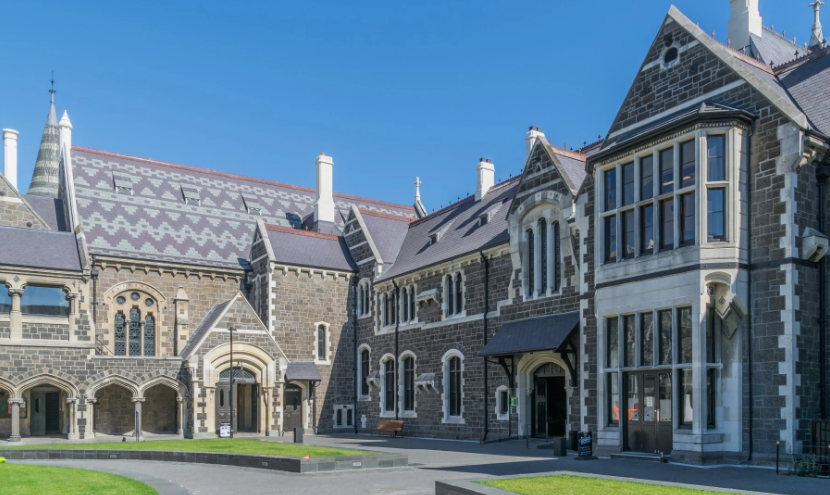
Conclusion
Studying medicine in New Zealand offers an exciting opportunity for international students to receive high-quality medical education, gain valuable clinical experience, and embark on a fulfilling career as a doctor. From the rigorous admission process to the comprehensive medical curriculum and post-graduation pathways, New Zealand provides a clear and structured pathway for medical students to succeed.
Key Takeaways for Aspiring Doctors
World-Class Education: New Zealand’s medical schools are renowned for their excellent medical education and practical training.
Scholarships: Numerous scholarships are available to help international students cover tuition fees and living costs, making education more accessible.
Post-Graduation Opportunities: There are ample opportunities for international graduates to work, specialize, and gain residency in New Zealand after completing their studies.
Licensing and Certification: Completing medical school and passing the required licensing exams is essential for practicing medicine in New Zealand.
Competitive Salaries and Career Prospects: With a strong job market for medical professionals, doctors in New Zealand enjoy competitive salaries and diverse career opportunities.
For international students, New Zealand not only offers a world-class education but also a supportive, welcoming environment that allows for professional growth and personal exploration.
Resources for More Information
Education New Zealand: Offers detailed guides on scholarships, visa processes and living in New Zealand.
Medical Council of New Zealand: Provides information on registration, licensing exams, and post-graduation pathways.
University Websites: Check the official websites of the University of Otago and University of Auckland for specific admission criteria, deadlines, and scholarship opportunities.
New Zealand is an excellent destination for aspiring doctors, offering top-tier medical education and rewarding career opportunities. If you are ready to take the next step in your medical career, studying in New Zealand may be the perfect choice.
For example, regional scholarship Adisurc covers for “University of Campania Luigi Vanvitelli” and “University of Naples Federico II“. Keep in mind, for these scholarships you have to apply separately from university of New Zealand and their dates may be different from those of IMAT and pre-enrollment.

